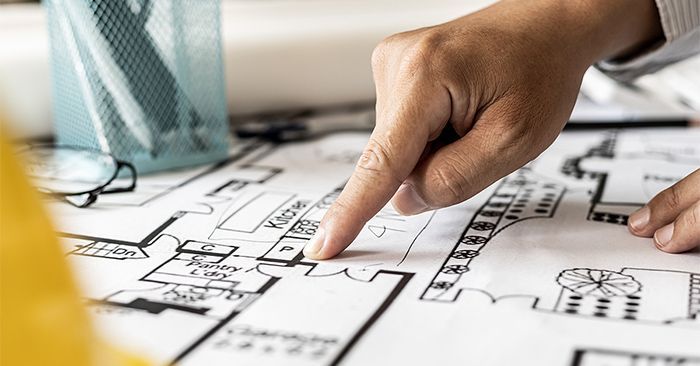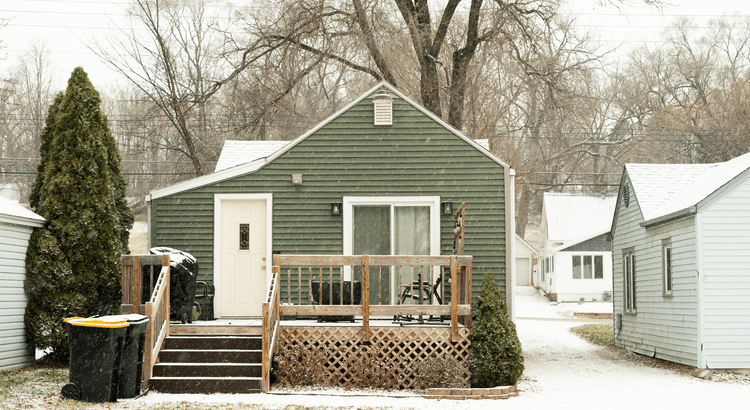Recent Data Suggests You Shouldn’t Spend Another Dime on Home Improvements Before Speaking With a Local Real Estate Agent

If you do renovations or home improvements to your house, common sense says that doing so would raise the value, right?
The good news is that they do increase the value of your house!
The not-so-great news is that the amount your home goes up in value probably won’t be as much as you even spent on the project…
In fact, as CNBC recently reported, according to the 2023 Cost vs. Value Report, only 4 home improvement projects produce a positive return-on-investment. And if that’s not surprising enough, they probably aren’t even ones you’d think would make the list! The current projects that will net you the most profit when you sell your house are:
- Switching out a traditional furnace to a heat pump. That’ll put an extra $619 in your pocket based upon national averages.Replacing your garage door. That will add $116 to your bank account.
- Replace your siding with a stone veneer. Add $192 to your balance sheet.
- Change out your front door with a new steel door. Treat yourself to some lunch with the $21 you’ll recoup.
If you combined all four of those exact home improvement projects, you can expect to net a whopping $948!
The big, sexy projects most people think about doing to improve value — like a full-blown renovation of an existing bathroom or kitchen — will certainly add value, but they won’t increase the value as much as they cost to do. Those types of projects recoup less than 50% of what they cost a homeowner.
That said, those are based upon national data and averages. Here’s a link to the data CNBC cited in their article, which allows you to choose your specific area to get a better idea for how much you can expect to recoup on a project where you live. But the general gist is always the same: Very few projects will produce a positive return, regardless of where you live. And when they do, it’s rarely all that much of a return.
Should You Even Update or Renovate Your House at All?!
Once the initial shock wears off, the next question most homeowners have is whether they should waste any time or money on improving their house at all. But before you decide to never spend another cent or minute of your time on your house, here are a few things to consider:
- Updates and renovations will make your house more attractive and appealing to potential homebuyers.
- An outdated house (or one in need of repairs) can bring your value down. You need to maintain your house to about the level of other homes in the area, if you want to fetch a similar price to other recently sold homes.
- If your home isn’t updated, it can take a longer time to sell, or not sell at all, if it’s a slow market.
So you still need to make sure you’re keeping your house in good shape, and improving it over the years, if you want your house to sell readily and for as much as possible.
Things to Do and Keep In Mind if You Renovate
In order to maximize the money you spend on home improvements, here are a few key things you should do:
- Speak to a local real estate agent before doing any projects. Basing your decision upon national (or even regional) data can be misleading and inaccurate. Just because a particular type of project tends to produce a better return, and another does not in most areas, that might not be the case in your specific price range and market. A local agent will be able to help you assess whether or not a project will improve the value of your home enough to make it worth the investment.
- Don’t underestimate the value of your enjoyment. While a project may not produce a positive financial return, that doesn’t mean it won’t give you great satisfaction and enjoyment. There’s nothing saying you have to make money on the projects and home improvements you do, so long as you know what to expect ahead of time and aren’t surprised when you decide to sell.
- Be frugal and thoughtful about what you spend on improvements. New and updated is better even if it isn’t the highest end finishes or materials. Unless you’re in the luxury market, you can probably get away with doing lower-grade upgrades if you’re concerned about making as much of your money back as possible.
- Keep it neutral and universal. If you’re concerned about recouping as much money as possible, try to do projects and updates that will appeal to almost every buyer by keeping them neutral in style and color.
The Takeaway:
Many homeowners are surprised that their home renovations and improvements don’t increase the value of their home as much as they hoped, or even as much as they cost to do, when they decide to sell their house. But the reality is, very few projects produce a positive return-on-investment, and it isn’t very much of a return when they do.
If you want to maximize your ROI on home improvements, make sure to speak with a local real estate agent to help you assess whether a project makes sense before you spend time and money on it.
Share this post




